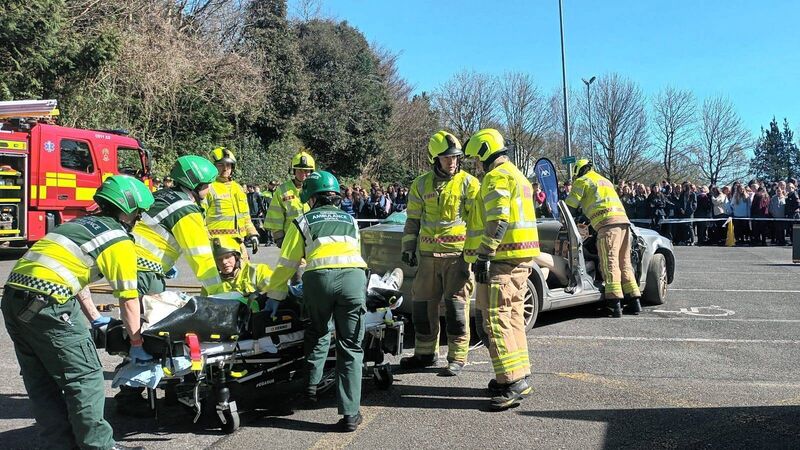Messaging on road safety needs to be backed by enforcement

Members of the National Ambulance Service and Cork City Fire Brigade demonstrating a simulated car crash at the AXA Roadsafe Roadshow at the Silversprings Hotel in Cork.
“The value of my child, for the state of Ireland in this case is a two-year sentence.” These are the words of Cesar Ladeiro in conversation with Joe Duffy on RTÉ radio in February.
His son, eight-year-old, André Castro Ladeiro died on August 12, 2023, when he was run over with the green light in his favour at a pedestrian crossing in Carrigaline by John Moynihan. On February 10, Moynihan was jailed for three years, with the last suspended, for dangerous driving in a case where he pleaded guilty.













